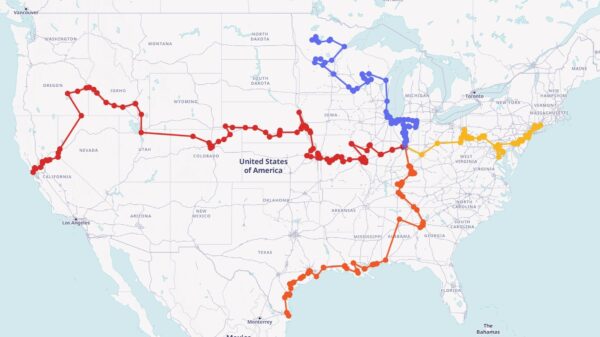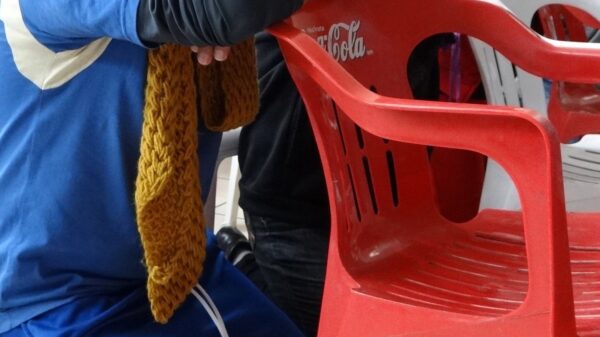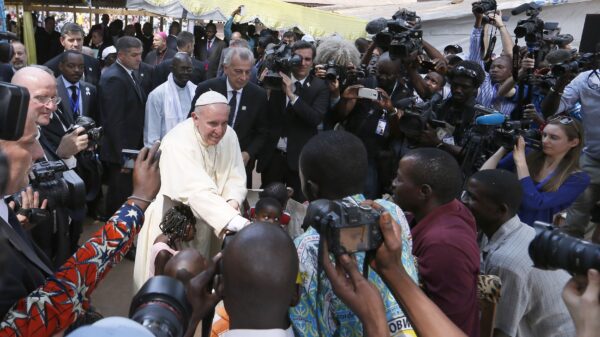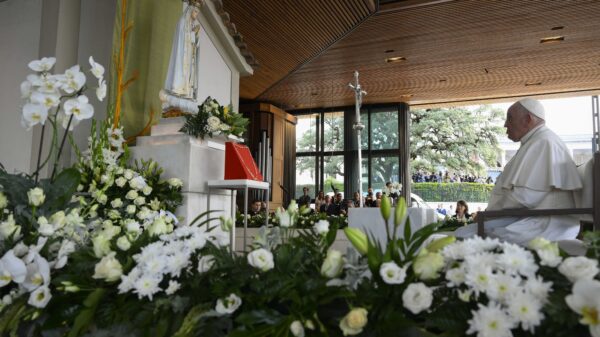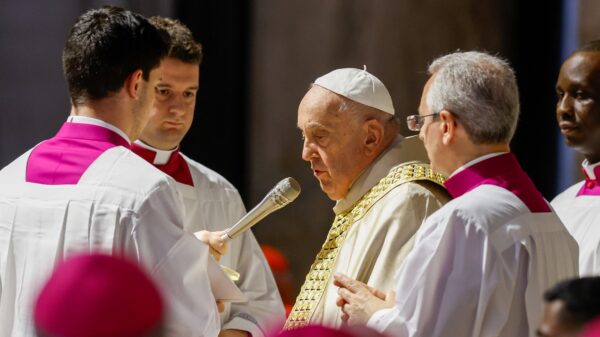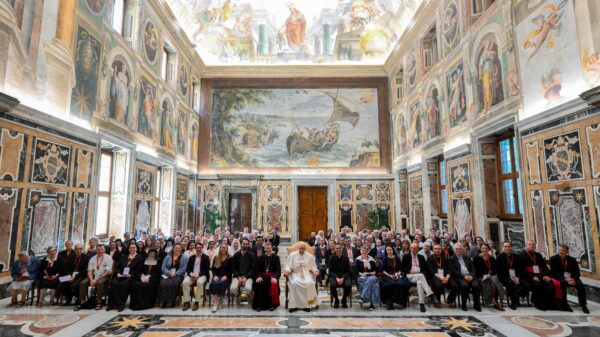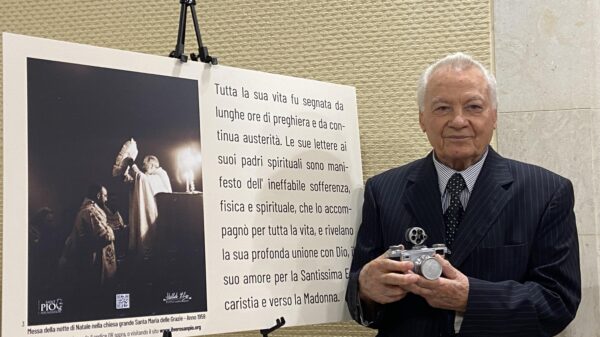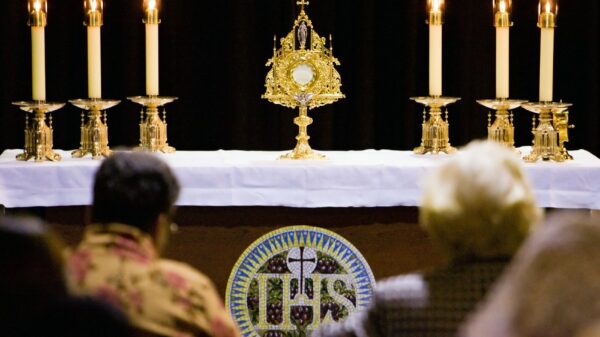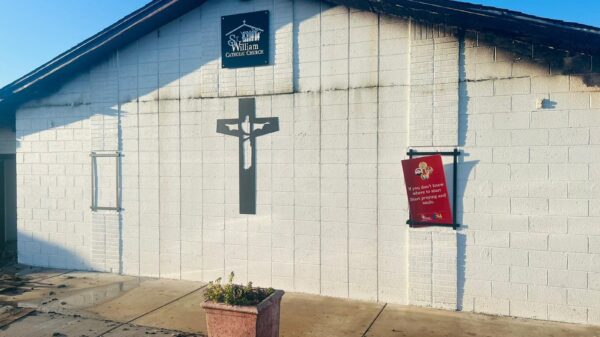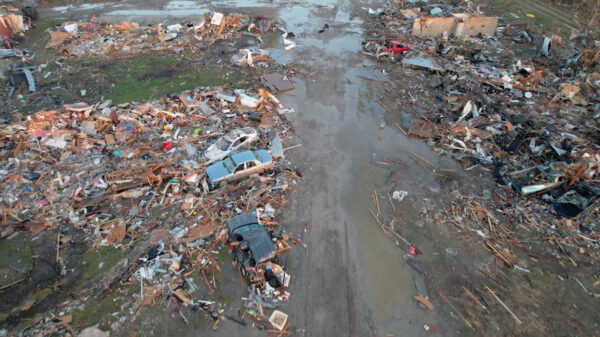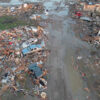NAIROBI, Kenya (OSV News) — As the Synod of Bishops on synodality resumes in five months in Rome, Catholic bishops in Africa are enthusiastic about the second part of the process, with some leaders however anxious that the Vatican document allowing blessings of same-sex couples had poisoned the environment, making it difficult to implement the synod’s outcome.
Rwandan Jesuit Father Marcel Uwineza, who is an enthusiast of the synodal process said the bishops are “on board,” and that there is a clear change of mindset that synodality is the way of being church today.
“When I judge from the people I have met … I think there is a change (in) mentality. You know that this is a hard thing to get,” Father Uwineza, rector of Hekima University College in Nairobi, told OSV News.
“I saw a lot of enthusiasm that Pope Francis is pointing us to Christ,” Father Uwienza said.
He added that the Synod of Bishops on synodality is a clear implementation of the Second Vatican Council and that Pope Francis is steering the church into embracing the council’s outcome 60 years later.
He explained that St. Paul VI established the world Synod of Bishops to help the church renew itself and deal with future challenges.
“Broadly speaking, the Synod on Synodality is a call to say: Synodality is the life and blood of the church, is the way of being church and there is no other way,” said Father Uwineza. “The hierarchical model, where the priests speak … and others listen, is not sustainable. We are all members of the body of Christ, and so everybody has a say to participate.”
At the same time, the priest said “Fiducia Supplicans” (“Supplicating Trust”) — the Vatican’s Dec. 18, 2023, declaration allowing priests and other ministers to give non-liturgical blessings to same-sex and other couples not married in the church — had caused some obstruction, especially in the African continent.
He said the bishops had complained that the Vatican had dropped the document on them, departing from a tradition of consultations seen with other documents.
After “Fiducia Supplicans” was issued, citing cultural differences and doctrinal confusion, the bishops’ conferences across Africa ruled that same-sex blessings will not be carried out in the continent. To date, the African bishops have been the strongest in voicing opposition to the document.
In a statement released Jan. 11, Cardinal Fridolin Ambongo of Kinshasa, Congo, president of the Symposium of Episcopal Conferences of Africa and Madagascar, or SECAM, said the decision to not bless homosexual couples was made in agreement with Pope Francis and Cardinal Victor Manuel Fernández, prefect of the Dicastery for the Doctrine of the Faith.
“We, the African Bishops, do not consider it appropriate for Africa to bless homosexual unions or same-sex couples because, in our context, this would cause confusion and would be in direct contradiction to the cultural ethos of African communities,” he said.
Father Uwienza suggested that “there could have been wider consultations” on the document and that the presidents of bishops’ conferences “should have at least had an idea (it was planned to be released). Not all of a sudden and then a document drops,” he said, questioning why the declaration could not have waited until the synodal process was completed and then be released as a resolution.
However, the priest urged Catholics to understand the declaration as a pastoral document.
Later in January, in a joint news conference with representatives of the Council of European Bishops’ Conferences, Cardinal Ambongo said “Fiducia Supplicans” had “damaged” the synodal process. Its timing, the cardinal said, had created a view that the declaration was an outcome of the gathering.
“In the first session, the synod dealt with these issues, but the synod did not decide,” Cardinal Ambongo said Jan. 25. “So the publication of this document between the two sessions of the synod was seen by most people as if it was the fruit of the synod, when it had nothing to do with the synod.”
According to Father Joachim Omolo Ouko, an Apostle of Jesus priest in the Archdiocese of Kisumu, Kenya, many Catholics in Africa perceived the synod negatively after the release of “Fiducia Supplicans,” and for them, implementing the synod outcome may not have a big impact.
“They see it (synod) as a threat to the church, especially the issue of opening the church door to gay people,” he told OSV News, adding that “this has made many people develop cold feet” while awaiting the second session of the synod.
“We are losing the taste of the salt because of too much modernization of the church and too much materialism,” he said, highlighting that those factors were resulting in diminished vocations to the priesthood and religious life.
Archbishop Martin Kivuva Musonde of Mombasa, Kenya, said the idea of the synod is for the church as a whole to look at itself and the areas where they think something needs to be done. And for African prelates the family is a number one issue to fight for.
” In Africa, we are championing the family for the simple reason that if the family does not form its own children, does not teach them and does not support them, they will … become a problem,” Archbishop Musonde told OSV News.
“You see, in the ways of the West, some things that are being proposed will in the end kill the family. In fact, if you listen to (delegates from) Europe, America and other places, churches are empty. What happened? The population is going down and there are no new births,” he pointed.
When the second phase of the Synod of Bishops on synodality convenes, Father Uwienza, who works with African students on a daily basis, wants the African delegates to focus more on instilling the faith among young people because many were losing it.
He also wants African bishops to take seriously the role of women in the church, rethink the formation of priests as a process that is more holistic and not isolated from the rest of the world, and prioritize the challenges facing the people of the continent.
“Our challenges are beyond polygamy. We have challenges of dictatorship, we have bad governance, challenges of corruption, and these affect our people and reduce their dignity,” Father Uwienza said.
Frederick Nzwili writes for OSV News from Nairobi, Kenya.



